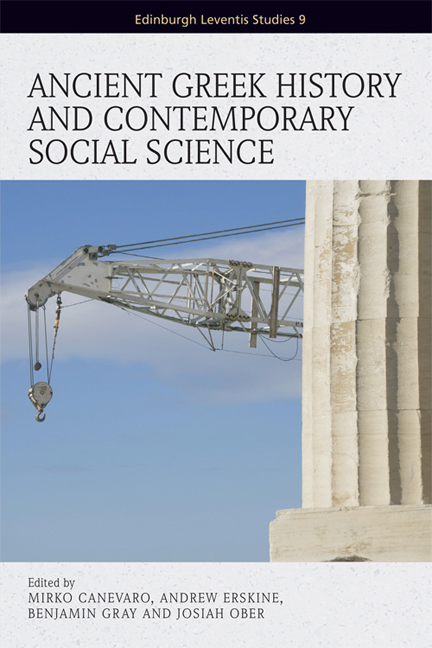14 - Exploring Intercommunity Political Activity in Fourth- Century Greece
Published online by Cambridge University Press: 06 May 2021
Summary
INTRODUCTION
The study of classical Greek politics has historically been dominated by an approach which concentrates on affairs that went on inside the polis: this seems a reasonable position when we consider that the word ‘politics’ derives from the Greek politika (‘polis affairs’), and the fact that the political institutions of Greek city-states demonstrate immense diversity from the archaic period onwards. This approach has an ancient heritage: the Aristotelian project which gave rise to the publication of 158 accounts of the politeiai of Greek states in the late fourth century bc suggests that a significant school of ancient Greek thought also valued the polis-by-polis approach to the history of politics.
However, poleis were not exclusively inward-looking entities: of necessity they faced up to the consequences of the decisions and activity of other communities. Their citizens interacted with members of and the institutions of other communities: they fought as soldiers, and, on visits to other cities, staked claims – both as agents of their polis communities and of their personal interests. On returning to their home cities, politicians made speeches in which they asserted the significance of their activity abroad (e.g. Dem. 6.25–7). Intercommunity activity, therefore, offered a stage and a vehicle for the performance of politics and the transmission of political capital. During the classical period, a number of writers offered observations or commentaries on interpolis patterns of political activity, change and upheaval: Thucydides, in his account of stasis at Corcyra, for instance, made broad statements about the political strife that states experienced and the tendencies of their politicians during the early part of the Peloponnesian War (Thuc. 3.82.1); the empirical sections of Aristotle's Politics (especially book 5; e.g. 1301a19–25) are indicative of a methodology that draws upon examples from across the Greek world in its analysis of political change.
There has been a remedial tendency in recent scholarship on Greek history to challenge the primacy of the polis as the exclusive prism through which to view ancient political phenomena; much has been published to highlight the existence of inter-polis political institutions and exchanges in the shape of alliances, confederacies, interstate arbitration and the disbursal of honorific rewards.
- Type
- Chapter
- Information
- Ancient Greek History and Contemporary Social Science , pp. 405 - 432Publisher: Edinburgh University PressPrint publication year: 2018



